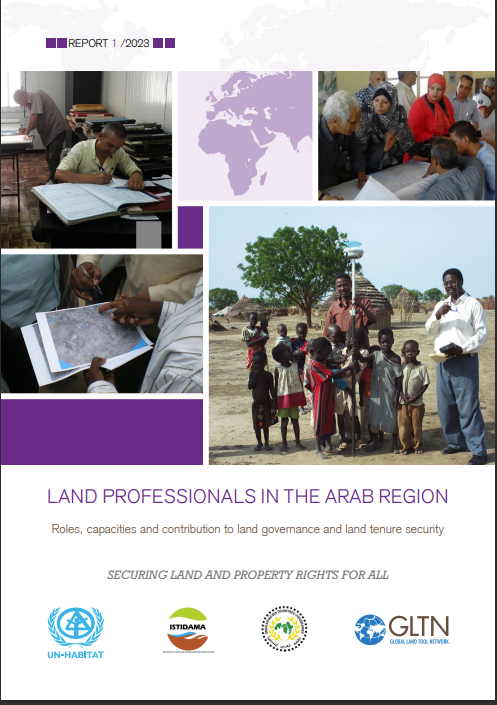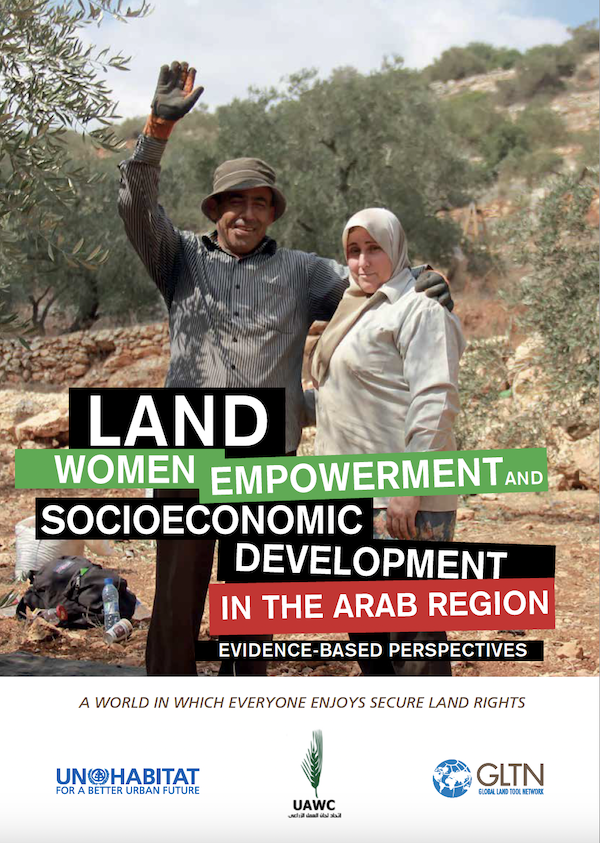Focal point
Location
The Global Land Tool Network (GLTN) is an alliance of global regional and national partners contributing to poverty alleviation through land reform, improved land management and security of tenure particularly through the development and dissemination of pro-poor and gender-sensitive land tools.
Secure land tenure and property rights are fundamental to shelter and livelihoods as well as the realisation of human rights, poverty reduction,economic prosperity and sustainable development.
The Global Land Tool Network (GLTN) main objective therefore is to contribute to poverty alleviation and the Millennium Development Goals through land reform, improved land management and security of tenure.
UN-Habitat through GLTN continues to work towards this with partners who include international civil society organizations, international finance institutions, international research and training institutions, donors and professional bodies.
Most developing countries use conventional land administration systems which cover less than 30 per cent of the country, leaving up to 70 per cent of citizens looking to informal and/ or customary approaches for their tenure security.
While there are many examples of good land policies, there are few policies that have been fully implemented due to lack of pro-poor, gendersensitive and largescale land tools. Further, conventional land titling approaches have largely failed to deliver their expected results since existing technical solutions are too expensive, inappropriate for the range of tenure found in developing countries, unsustainable financially or in terms of available capacity, and instead a range of land tenure options is more appropriate.
Core Values
Consequently, GLTN's core values and principles are founded in the development of land tools that are:
- Pro poor;
- Equitable;
- Sustainable;
- Affordable;
- Systematically large scale /scalable; and,
- Gender-sensitive, while taking into consideration:
- Good governance;
- Subsidiarity; and,
- The Continuum of Land Rights.
GLTN Objectives and Mandate
GLTN has developed a global partnership on land issues pulling together global partners, as well as many individual members. These partners include international networks of civil society, International Finance Institutions, international research and training institutions, donors and professional bodies. It continues to take a more holistic approach to land issues by working towards the following objectives:
- The establishment of a continuum of land rights, rather than just focus on individual land titling
- Improving and developing pro-poor land management, as well as land tenure tools
- Unblocking existing initiatives Assisting in strengthening existing land networks
- Supporting in the development of gendered land tools which are affordable and useful to grassroots
- Improving the general dissemination of knowledge about how to improve security of tenure
- Improving the general knowledge dissemination on the improvement of security of tenure
Resources
Displaying 6 - 10 of 286Land Professionals in the Arab region. Roles, capacities and contribution to land governance and land tenure security
A functioning land sector is foundational to peace and stability, sustainable development, economic growth, food security, environmental conservation and poverty reduction in the Arab region. Effective and fit-for-purpose land administration is an important precondition for the functioning of the land sector and the foundation for good land governance.
Land, Women Empowerment and Socioeconomic Development in the Arab Region. Evidence-based perspectives
There is a correlation between socio-economic development, human rights and the empowerment of men and women to participate at all levels of decision making. Secure land rights are an important precondition for the achievement of these goals, including and the realisation of a broad spectrum of human rights: adequate housing, equality, food, health, work and education.
Learning lessons from the implementation process of AU Agenda on land
This assessment study on land policy in Africa was initiated by the Civil Society (CSO) Platform, and supported by UN-Habitat, Global Land Tool Network (GLTN), International Land Coalition (ILC) and Welthungerhilfe (WHH). It sets out to learn lessons from the implementation process of AU Agenda on land and stimulate discussion on the way forward to further improve land rights and land governance in Africa as a basis for equitable progress and prosperity.
Key Messages on Women, Land and Peace
These messages were developed based on the field experience in fragile and crisis affected contexts of UN-Habitat and the partners of the Global Land Tool Network and the HLP Area of Responsibility of the Global Protection Cluster. They are a quick reference on how to empower
women and protect their housing, land and property rights in fragile and crisis affected contexts and why this is an essential element to sustain peace and stability.
Land Tenure and Sustainable Agri Food Systems
The aim of this paper is to consolidate lessons from existing evidence that demonstrates the role of equitable access and tenure security to land in achieving sustainable food systems transformation, and subsequently, for the overall achievement of the SDGs. It makes the case of the importance of reforming and securing access and tenure rights to land and natural resources.







